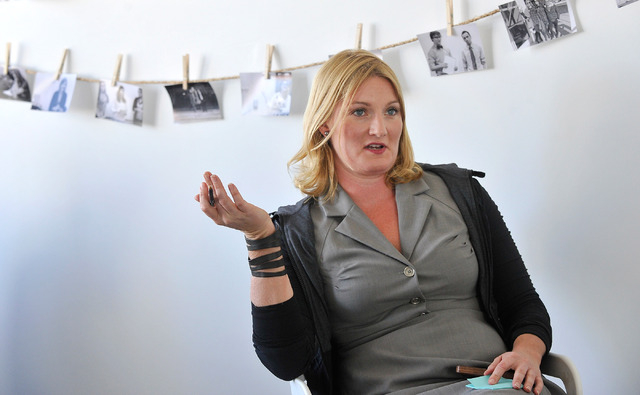“What the vast majority of us forget is that the future is unwritten. Our present scenario is a crappy gift left to us by previous generations, and their biases, assumptions, and limited beliefs. But just as people created the current cluster f***, they can re-imagine a new, (at least marginally) better one.”
I was recently coaching a new college grad who told me the idea of a career fulfilling his Ikigai — work which simultaneously reflected what he was good at, loved, could be paid for, that the world needs — was unrealistic. An early twenties, aspiring entrepreneur, officially entering the work force, committed to social impact, was already resigned to the fact that the place where he will spend 1/3 of his life will be a perpetual concession of money or meaning. Sigh. Just a few days earlier, I’d heard similar cynicism from another guy in the early stages of his career.

To be clear, these aren’t people with decades of experience being beaten down by The Man. They don’t have years of overwork, underpay, or unreasonable marching orders that have gradually eaten away at their souls. And yet they’ve already drank a few shots of the Kool Aid that convinces us work cannot be simultaneously paying and purposeful. How depressing! But probably not surprising, given the lifetime of reinforcement we get to this effect — from pop culture, to school, to our parents and their friends, (not to mention our own lousy jobs) we are bombarded with evidence that work is something to be escaped from, vacations and weekends to be lived for, and Mondays to be dreaded (OMG, not Mondays!).
What the vast majority of us forget is that the future is unwritten. Our present scenario is a crappy gift left to us by previous generations, and their biases, assumptions, and limited beliefs. But just as people created the current cluster f***, they can re-imagine a new, (at least marginally) better one. And with the rising generation beginning to emerge into our workplaces comes novel ideas about social impact, corporate responsibility, and even the way and why we work.
Gen Z makes up 25% of the US population — larger and more diverse than either Baby Boomers or Milllennials. By 2020 they will account for 40% of all consumers. They use their wallets to support companies with shared ethos. And the majority are or want to be entrepreneurial — they seek an alternative to traditional work environments. But wanting something and believing it can happen just ain’t the same thang. Despite great strides toward more impact driven companies and better entrepreneurial education, even the most hopeful among this cohort still think of meaningful work as a pipe dream. (Remember the skeptical new grad from the first paragraph?) Perhaps the biggest obstacle to a desirable future remains our antiquated mindset about what is possible.
Perhaps the biggest obstacle to a desirable future remains our antiquated mindset about what is possible.
Many of us find ourselves in positions we aren’t passionate about (or, worse, don’t even know what we are passionate about), but we feel stuck in circumstances that prevent us from getting the heck out of Dodge. We are in a job that has some of the elements we want, but definitely leaves a lot to be desired. And since we can’t make the big move, we stop considering all the small ways we might improve things a bit, making the less than ideal job a little bit less not ideal. But regardless of where we sit, we usually can level up on our money, meaning, impact, and/or ability. Rather than buying in to the self-perpetuating belief that this choice between money and meaning is binary, we can move along the spectrum between them. In any position we can “be the change” we want to see, it just requires deciding to do so (crazy, I know, but stick with me here).
Rather than waiting for someone to promote you to the perfect role or offer you that dream job, speak up and be the voice of your values — whether it be more environmentally sustainable products, more equitable hiring practices, better learning and development options, more diverse voices, programs and products that help society, employee volunteering, innovative design thinking, family friendly policies.
Rather than waiting for someone to promote you to the perfect role or offer you that dream job, speak up and be the voice of your values — whether it be more environmentally sustainable products, more equitable hiring practices, better learning and development options, more diverse voices, programs and products that help society, employee volunteering, innovative design thinking, family friendly policies. (And p.s. given the broader market shifts toward brands making a positive social impact, these purpose driven initiatives may also drive higher profitability for your organization, which is helpful to point out when you are trying to find resources and support for your initiatives).
Simply start to be a champion for that shift by taking one step to exemplify your desired impact — this could take the shape of launching a professional club, championing a new process, scheduling group fitness, or gathering likeminded folks for regular salon discussions.
And when it comes time to think about making moves to a new role, being aware of what your Ikigai parameters are — not just what you are good at and can be paid for, or the other questions we repeatedly ask throughout our career and hope for new answers — but also what you care enough about to dedicate time and energy to making better, the impact you want to leave, what you are uniquely equipped to accomplish, etc. can help you as you sift through options and plan for next steps and future roles. Rather than waiting for that impossible job that checks all the boxes, one that is the elusive perfect balance of the 4 Ikigai elements, you can view each opportunity based on awareness of your individual preferences and parameters, consciously and gradually (or not so gradually) moving closer to what you most value at different stages of your life. Not to mention adjusting your preferences as those values shift over time.
If we are to re-think work, success should be as individually defined as we are. There is no perfect standard equation leading to an everlasting meaningful career. Ikigai is not a calculator but a compass. And designing your career from a place of awareness about the deeper motivations and desired impact you hold (in conjunction with where you are skilled and the types of jobs that financially recognize those skills) can inject a bit of soul into the place where you spend the vast majority of your waking years.
Originally published at medium.com
For more Ikigai related posts, follow me on Medium. For updates about my upcoming book and other Ikigai related content, subscribe on my website (scroll to the bottom of the page). I keep my pieces free, so more people have access to these resources. Your likes and shares would help in that mission.


